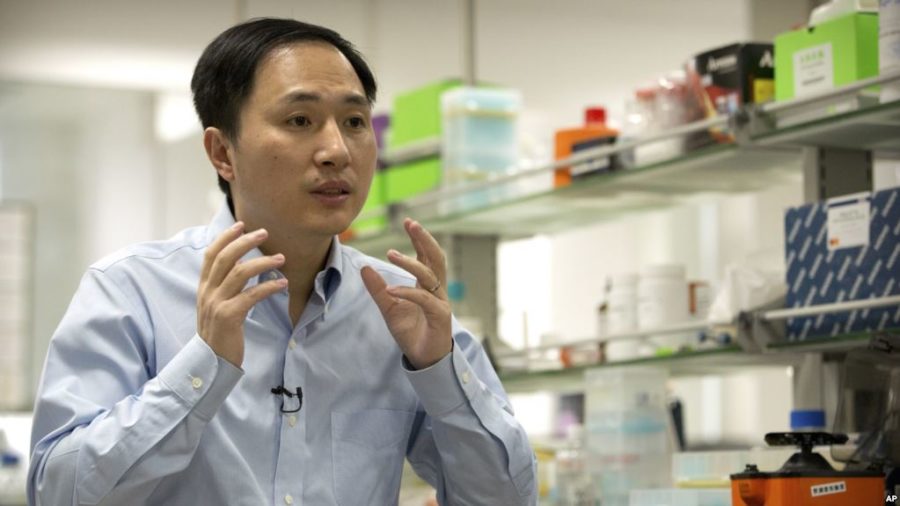Chinese Doctor Under Fire for Editing Babies’ Genetic Codes
December 5, 2018
During a presentation, a Chinese doctor by the name of He Jiankui declared himself to be the first person to edit the genetic code of two twin babies. Dr. He performed this genetic engineering through a method called CRISPR, in an attempt to protect the children from contracting H.I.V. He appears to be confident in his efforts, and the New York Times mentioned that he “was proud”. His actions have sparked outrage within the scientific community, with many questioning the ethics behind his decision.
Dr. Baltimore, a doctor who was at his presentation, reportedly spoke to the audience and explained that he doesn’t “‘think it was medically necessary.'” One of the main concerns that many have with this clinical trial is that Dr. He was directly involved in obtaining consent, a process that only lasted three hours. Robin Lovell-Badge, the head of a genetics lab at Francis Crick Institute, emphasizes the need for a third party’s presence to thoroughly explain the risks associated with the trial. By doing so, potential researcher bias can be avoided.
Furthermore, researchers are worried about the potential ramifications of removing the CCR5 gene that Dr. He’s genetic engineering targeted. Due to the lack of research, it is unknown what the loss of such a gene could mean for the two children. There is, however, speculation that it will cause a higher risk for various diseases, including influenza.
Although China has heavily invested in gene editing, a statement containing over 120 Chinese scientists disowned Dr. He’s findings and expressed concerns about how his actions could undermine China’s reputation in a biomedical sense.
Despite this backlash, it is evident that Dr. He intends to further his research, as he has a potential third subject. His confidence must come from the fact that “Lulu and Nana were both born normal and healthy”, meaning that his research, as of now, can be considered a success. Even though his work could be potentially beneficial to the lives of many, Dr. He may not be able to perform further research because his violations of ethical law have caused his university to renounce his work. The National Health Commission in China has allegedly begun an investigation into Dr. He’s clinical trials.
After delivering his speech, Dr. He’s ethical tactics were criticized and questioned, with the goal to ethically correct his previous actions. Hopefully, with clearer boundaries established in the realm of genetic engineering, other scientists will be forewarned to not follow in Dr. He’s footsteps.












